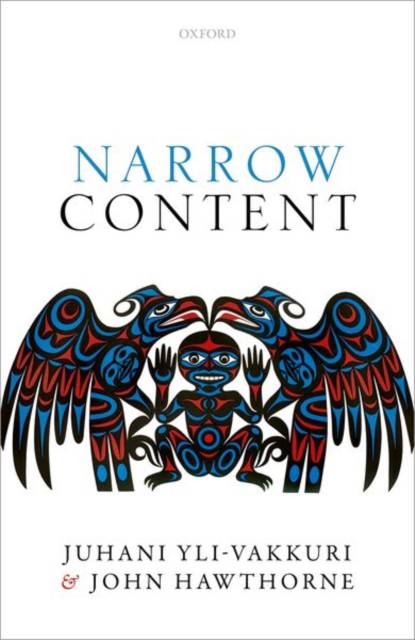
- Afhalen na 1 uur in een winkel met voorraad
- Gratis thuislevering in België vanaf € 30
- Ruim aanbod met 7 miljoen producten
- Afhalen na 1 uur in een winkel met voorraad
- Gratis thuislevering in België vanaf € 30
- Ruim aanbod met 7 miljoen producten
Zoeken
Omschrijving
It is natural to distinguish, for any thinking creature, those events and states that are internal to the creature -- its brain states, for example -- from those that are not. Narrow mental content, if there is such a thing, is content that is entirely determined by the goings-on inside the head of the thinker. A central question in the philosophy of mind since the mid-1970s has been whether there is a kind of mental content that is narrow in this sense. One important line of thought -- by 'externalists' -- has been that so-called intentional states, such as wishing that they sky were blue and believing that the sky is blue, are, perhaps surprisingly, not internal: there could be twins who are exactly alike on the inside but differ with respect to such intentional states. In the face of this wave of externalism, many philosophers have argued that there must be some good sense in which our intentional states are internal after all, and that such narrow content can play various key
explanatory roles relating, inter alia, to epistemology and the explanation of action. This book argues that this is a forlorn hope, and defends a thoroughgoing externalism. The entanglement of our minds with the external world runs so deep that no internal component of mentality can easily be cordoned off.
explanatory roles relating, inter alia, to epistemology and the explanation of action. This book argues that this is a forlorn hope, and defends a thoroughgoing externalism. The entanglement of our minds with the external world runs so deep that no internal component of mentality can easily be cordoned off.
Specificaties
Betrokkenen
- Auteur(s):
- Uitgeverij:
Inhoud
- Aantal bladzijden:
- 222
- Taal:
- Engels
Eigenschappen
- Productcode (EAN):
- 9780198785965
- Verschijningsdatum:
- 7/08/2018
- Uitvoering:
- Hardcover
- Formaat:
- Genaaid
- Afmetingen:
- 160 mm x 236 mm
- Gewicht:
- 476 g

Alleen bij Standaard Boekhandel
+ 248 punten op je klantenkaart van Standaard Boekhandel
Beoordelingen
We publiceren alleen reviews die voldoen aan de voorwaarden voor reviews. Bekijk onze voorwaarden voor reviews.








